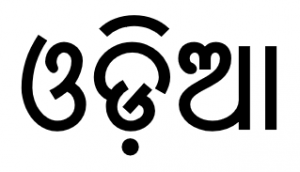Language/Odia/Grammar/Conditional-Mood
Hi Odia learners! 😊
In today's lesson, we will be discussing the conditional mood in Odia. This is an important part of the language and understanding it will help you to communicate more effectively. We will look at how to form sentences in the conditional mood, as well as some examples of its use.
Don't hesitate to look into these other pages after completing this lesson: Pronouns, Adjectives & Give your Opinion.
Overview[edit | edit source]
The conditional mood is used to express a hypothetical situation or condition. It is used to talk about what would happen if something were true. In Odia, the conditional mood is formed by adding the suffix -ତୁଳେ (-tule) to the verb stem.
Examples[edit | edit source]
Here are some examples of the conditional mood in Odia:
- ଆମେ ଯଦି ଗଲା ଯାଉଥିଲେ (Aame yadi gala jaauthele) - If I go
- ତୁମେ ଯଦି କରିଥିଲେ (Tume yadi karithele) - If you do
- ତେଣୁ ଯଦି ଆସିଥିଲେ (Tenu yadi aasithele) - If he/she comes
Usage[edit | edit source]
The conditional mood is used in a variety of ways in Odia. It can be used to express wishes, desires, and possibilities. It can also be used to make polite requests or to give advice.
Wishes and Desires[edit | edit source]
The conditional mood can be used to express wishes and desires. For example:
- ଆମେ ଯଦି ପାଇଥିଲେ ତେବେ ଅତ୍ୟାରେ ଖୁସି ହୋଇଥିଲେ (Aame yadi paaithile tebe atyaare khushi hoithile) - If I get it, I will be very happy.
- ତୁମେ ଯଦି ଆସିଥିଲେ ତେବେ ଆମେ ଖୁସି ହୋଇଥିଲେ (Tume yadi aasithele tebe aame khushi hoithile) - If you come, I will be happy.
Requests and Advice[edit | edit source]
The conditional mood can also be used to make polite requests or to give advice. For example:
- ତୁମେ ଯଦି କରିଥିଲେ ତେବେ ଆମେ ଆନନ୍ଦୀ ହୋଇଥିଲେ (Tume yadi karithele tebe aame anandee hoithile) - If you do it, I will be pleased.
- ତୁମେ ଯଦି ଗଲା ଯାଉଥିଲେ ତେବେ ଆମେ ଆଶା କରୁଛି (Tume yadi gala jaauthele tebe aame aasha karuchi) - If you go, I hope it will be good.
Conclusion[edit | edit source]
In this lesson, we have looked at the conditional mood in Odia. We have seen how it is formed and some examples of its use. We have also seen how it can be used to express wishes, desires, requests, and advice.
If you have any questions, please ask them in the comments section below.
Feel free to edit this wiki page if you think it can be improved. 😎
Other Lessons[edit | edit source]

